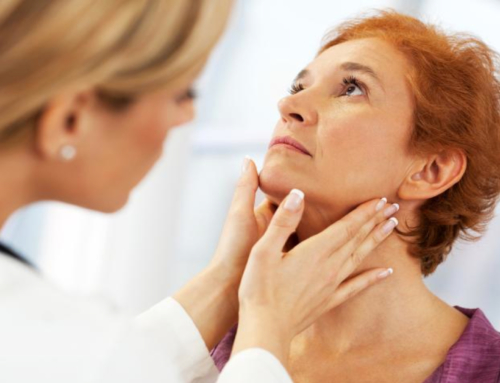How to Practice Effective Hygiene
if You Have Sensitive Skin,
Allergies or Chemical Sensitivity
If you have allergies, chemical sensitivity or sensitive skin, even something as simple as washing your face can be irritating. This is because soaps, shampoos and other personal care products often contain a toxic slew of chemicals.

If you have sensitive skin or allergies, only use personal care products with a few simple plant-based ingredients. |
Even for someone without sensitivities, everyday use of personal care products can lead to “chemical overload,” which may cause allergies or disease, according to a study by the Environmental Working Group (EWG).
On average, the study found that an adult uses nine different cosmetics each day, with exposes them to about 126 chemicals!
“It is not just the fact that these chemicals are being absorbed through the skin that is worrying,” says Lindsay McManus, an adviser on chemical sensitivity for Allergy UK on EWG.com. “Many of them are perfumed and the fragrance alone can contain 200 chemicals that need not be listed individually on the label, so people don’t know what they are getting.”
Inhaling fragrances alone can lead to nausea, fatigue and headaches, while other man-made ingredients can cause severe irritations in those with allergies. Why does this occur? Your organs of detoxification, particularly the liver, may not be detoxifying chemicals sufficiently, especially if they are weak, overloaded or unhealthy. The liver detoxifies in two phases. In Phase One, the liver removes stored toxins from cells. In Phase Two your body neutralizes those produced toxins and moves them out of the body via human wastes, perspiration, and even breathing. If your Phase Two detoxification is blocked for any reason, you will have reactions to chemicals such as nausea, headaches, coughing, shortness of breath, and ear, nose, throat and eye irritation as well as rashes. People with these types of reactions to chemicals are called pathological detoxifiers and need to support their ability to detoxify. Some foods can assist in naturally detoxification such as eating beets. Also at your next appointment ask if you’re health condition is appropriate for detox supplementation.
What Ingredients Should You Avoid?
When you consider that 89 percent of ingredients in the personal care products you use everyday — shampoo, soap, shave cream cosmetics, etc. — have never been tested for safety, the question perhaps should be, what shouldn’t I avoid?
If any of your personal care products contain the following ingredients, you could easily be triggering your symptoms:
- Phthalates:These industrial compounds are widely used in hairsprays, perfumes and cosmetics. Animal studies on certain phthalates have shown the chemicals may cause a variety of problems, including reproductive and developmental harm, organ damage, immune suppression, endocrine disruption and cancer.
- Parabens and Phenols: Used in toothpaste, shampoo and conditioner, hair gels, body wash and more. According to the National Institutes of Health, phenol is toxic and people who are hypersensitive to it could experience death or serious side effects at very low exposures. Parabens have also been linked to cancer and reproductive toxicity.
|
Seek a Toothpaste that is Mild and Non-Irritating for Those With Dental Gum Sensitivities Example: Perio-Biotic Toothpastes that are fluoride-free and contains dental hygiene probiotics. Reasons to find Perio-Biotic
|
- Fragrance: About 95 percent of the chemicals used in fragrances are synthetic, petroleum-based compounds. For people with allergies or multiple chemical sensitivity (MCS), these chemicals can lead to allergic reactions like sneezing, itchy watery eyes, wheezing and headaches.Other health conditions that can be exacerbated by fragrances, according to Tracie DeFreilas Saab, M.S., author of a comprehensive discussion, “Individuals with Fragrance Sensitivity,” include asthma, environmental illness (EI) and migraines.
According to EWG, other ingredients of high concern, particularly to those with allergies, are:
- Butylated Hydroxytoluene: Cancer, Allergies & Other Health Concerns
- Propylene Glycol: Penetration Enhancer, Allergies & Other Health Concerns
- Methylparaben: Allergies & Other Health Concerns
- Tetrasodium EDTA: Penetration Enhancer, Allergies & Other Health Concerns
- Propylparaben: Allergies & Other Health Concerns
- PEG-7 Glyceryl Cocoate: Harmful Impurities, Penetration Enhancer, Allergies & Other Health Concerns
- Diazolidinyl Urea: Harmful Impurities, Allergies & Other Health Concerns
- Tocopheryl Acetate: Harmful Impurities, Allergies & Other Health Concerns
- Octyl Methoxycinnamate: Penetration Enhancer, Allergies & Other Health Concerns
- Octyl Salicylate: Penetration Enhancer, Allergies & Other Health Concerns
- Disodium EDTA: Penetration Enhancer, Allergies & Other Health Concerns
- Polyquaternium-10: Harmful Impurities, Allergies & Other Health Concerns
- Ceteareth-12: Safety Violations, Harmful Impurities, Penetration Enhancer, Allergies & Other Health Concerns
- Ceteareth-20: Safety Violations, Harmful Impurities, Penetration Enhancer, Allergies & Other Health Concerns
- Triethanolamine: Cancer, Allergies & Other Health Concerns
- Benzophenone-3: Allergies & Other Health Concerns
- Sodium Laureth Sulfate: Penetration Enhancer, Allergies & Other Health Concerns
- Lactic Acid: Safety Violations, Allergies & Other Health Concerns
- Benzyl Alcohol: Allergies & Other Health Concerns
- Ethylparaben: Allergies & Other Health Concerns
What’s SAFE to Use … Even for Those who are Sensitive?

Did you know that “hypoallergenic” can mean anything the manufacturer wants it to? The only way to know if a product is safe is to read the ingredients label. |
Only all-natural products will do, and this means inspecting the ingredient label of any product you purchase closely. Do NOT rely on the package’s claims of “natural,” “organic,” or “hypoallergenic,” as even these products can still contain dangerous ingredients. The term “hypoallergenic” can actually mean whatever a particular company wants it to mean, according to the FDA.
Some ingredients that are generally safe and very gentle on your body are:
- Organic oils (such as olive oil)
- Essential oils
- Castile soap
- Aloe vera
- Plant extracts
And always avoid anything that lists “fragrance” on the label. Fragrance-free personal care products are much less likely to trigger a reaction.
Sources





